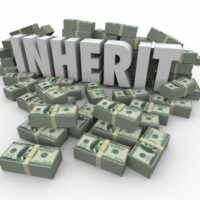Will My Heirs Have to Pay Pennsylvania’s Inheritance Tax?

A common question we get from estate planning clients is, “Will my estate have to pay a ‘death tax’?” This usually refers to the estate tax, which is a levy on your right to transfer property upon your death. For most Carbon County, Pennsylvania, residents, the estate tax is not something they need to worry about. Pennsylvania does not impose any estate tax at the state level. And the federal estate tax only applies to estates over a certain threshold, which for individuals who die in 2023 is $12.92 million.
But there is another death-related Commonwealth tax that you do need to think about–the inheritance tax. Pennsylvania is one of just six states to tax the value of assets transferred via will (or other “posthumous transfer.”) The personal representative of a Pennsylvania estate is required to pay inheritance taxes before making distributions to the beneficiaries of the estate. Inheritance taxes must be paid no more than nine months after the person’s death to avoid penalties. (Paying inheritance taxes within three months of death, however, entitles the estate to a 5-percent discount.)
Tax Rates Vary From Zero to 15 Percent
Pennsylvania’s inheritance tax is complicated because it establishes different tax rates for different beneficiaries. For the estates of persons who died on or after January 1, 2020, the rates are broken down as follows:
- The tax is zero for transfers made from the deceased to a surviving spouse, or to or from a child who is 21 or under.
- The tax is 4.5 percent for transfers to direct descendants or lineal heirs of the deceased.
- The tax is 12 percent for transfers to siblings.
- The tax is 15 percent for transfers to all other heirs unless they are exempt.
Exempt transfers include those made to a government agency or a legally recognized charitable organization. Some transfers of farm land and agricultural property are also exempt. Additionally, all transfers of property from the estate of a member of the military who died after September 6, 2022, due to an injury or illness while on active duty are exempt from inheritance tax.
How Could the Inheritance Tax Affect Your Family?
To put the inheritance tax rules into context, here are a few hypothetical situations:
- Janice dies and leaves $100,000 in cash to her brother, Frank, in her will. The inheritance tax due on this transfer is 12 percent or $12,000.
- Phillip dies without leaving a will. His only surviving descendant is his granddaughter, Cassie. Since she is a “lineal descendant,” the inheritance tax due would be 4.5 percent of Phillip’s estate.
- Louise added her son, Kevin, to her checking account as a joint owner. At the time of Louise’s death, there was $50,000 in the account. Kevin would have to pay 4.5% tax on half of the account–or $1,125–since his mother was a joint owner.
If you want to know more about how Pennsylvania’s inheritance tax could affect your family, it is best to speak with a qualified Leighton estate planning attorney. Contact the Law Office of Kim M. Gillen, P.C., today to schedule a consultation.

